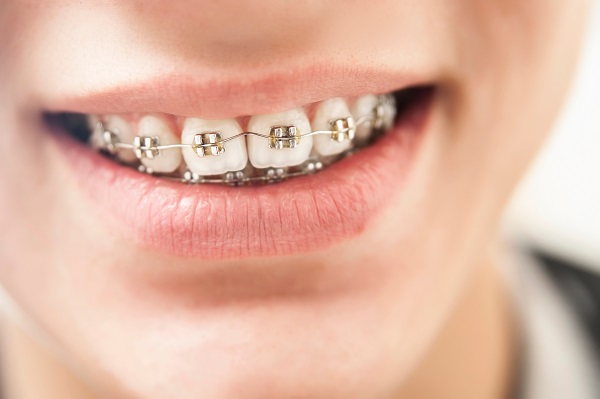A Step-by-Step Process of How Braces Work

Braces are one of the most popular ways to straighten teeth and gain a more attractive smile, but all too many who could benefit put off treatment because they do not know how the process works. By knowing the step-by-step process of braces, however, you can decide whether or not they are a good choice for you.
How braces work to move teeth
While each patient may experience a slightly different process, most orthodontists follow a similar process when it comes to providing braces treatment. The following is everything to know about how the braces process works, featuring the three steps that are most likely to be involved.
Initial consultation
The first step for every patient receiving braces is to schedule an initial consultation with an orthodontist, who can then conduct an oral examination and determine what teeth-straightening options are available to the patient. After doing so, the orthodontist can discuss the options with the patient and determine whether or not braces are the most appropriate form of treatment.
In some instances, the orthodontist may recommend the patient have their teeth cleaned and be treated for any oral health concerns that exist, which may include cavities, gum disease or chipped teeth.
Braces treatment
After both the patient and the orthodontist agree to proceed with braces treatment and the mouth is properly prepared, the treatment process can begin. The placement of the braces is rather simple and only takes a few hours, and it involves placing the brackets on teeth and using them to connect the metal wire. As treatment begins, there is likely to be an adjustment period in order to get used to living life with braces. There is likely to be some pain for the first week after each session. It is important to eat a proper diet when wearing braces and avoid doing anything to damage the teeth in any manner.
Follow-up care
Once the teeth are straightened and your orthodontist believes it is time to have the braces removed, the process is not completely over. If proper post-braces treatment is not provided, the teeth are likely to shift back into their natural position. Subsequently, your orthodontist is likely to have you wear a retainer to ensure tooth shifting does not take place. It can take over a year for the bone to form properly around teeth and ensure they do not shift back into their original position, so the retainer may need to be worn for a while.
Talk to an orthodontist about braces
There is nothing like having a beautiful smile to show off every day, and it helps many feel more confident and perform better at work, school and in social situations. If you are considering braces as teeth-straightening treatment, consult with us today and schedule a time to come in for your first visit. During your initial consultation, we will conduct an oral examination and ensure all of your questions are answered.
Are you considering braces in the Pinehurst area? Get more braces information at https://www.orthoisfun.com.
Check out what others are saying about our dental services on Yelp: Braces in Pinehurst, NC.
Related Posts
Choosing the right Invisalign® dentist is crucial when considering this braces alternative. To ensure the treatment effectively and discreetly straightens your teeth and aligns with your individual needs, careful selection of your dentist is essential. Asking the right questions will help ensure that patients receive the best care and achieve optimal results. Below are five…
A properly aligned smile comes from quality orthodontic care. A braces specialist helps fix misalignments, including crowding, gaps, bite issues, and crooked teeth. When pursuing teeth straightening orthodontic treatment, it is important to choose an experienced braces specialist for effective and long-lasting treatment.An orthodontist who focuses on braces treatment undergoes additional years of education and…
An orthodontist has various treatments to help patients achieve a straighter smile. While it is possible to get orthodontic treatment from other dental providers or even online, choosing a specialist like an orthodontist to guide your treatment can be the safest, quickest, and most comfortable route. Understanding why orthodontist-led treatments are the preferred choice for…
Expert teeth straightening services can help you achieve your dream smile by bringing your teeth back into alignment. However, the advantages of doing so are far from just cosmetic. You also have various options when it comes to this approach, and each choice has its own advantages and disadvantages. So, you should know how expert…
